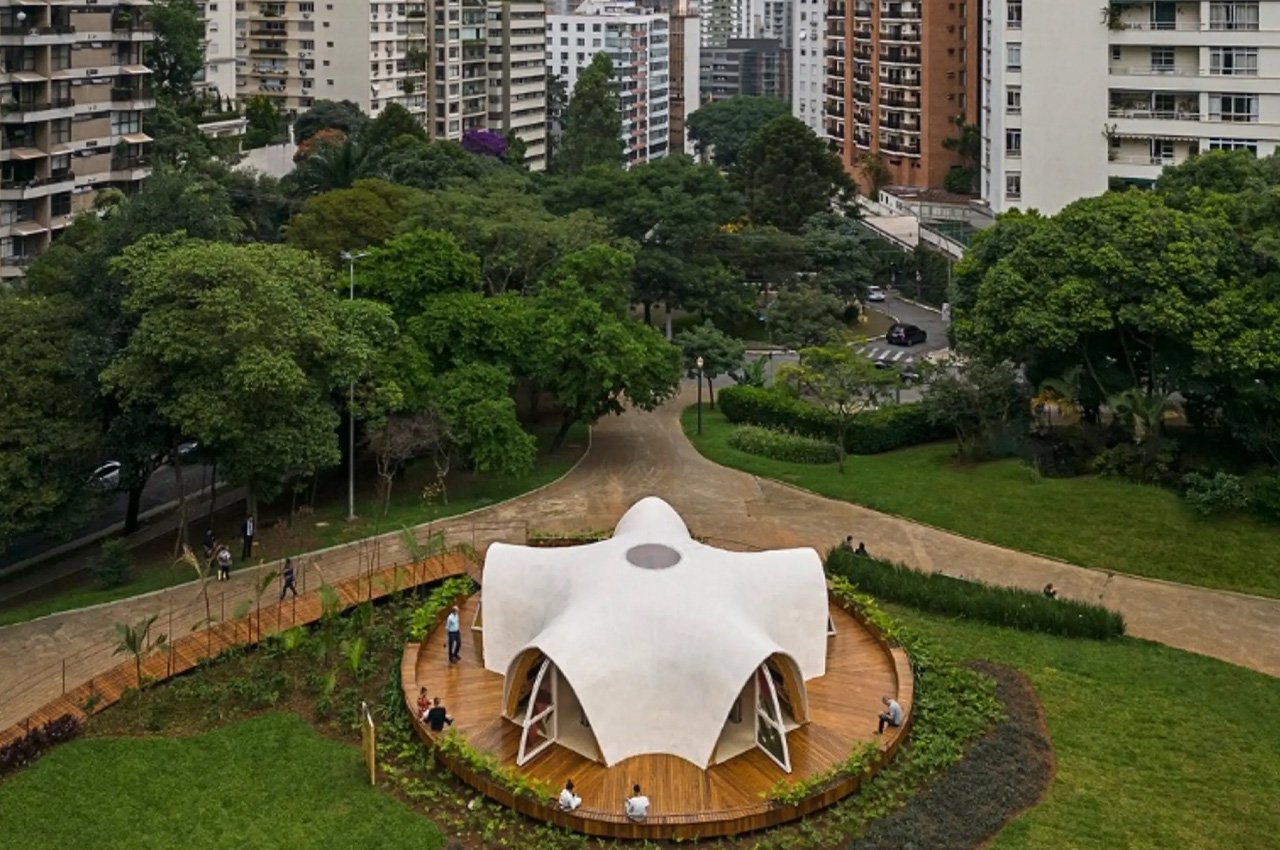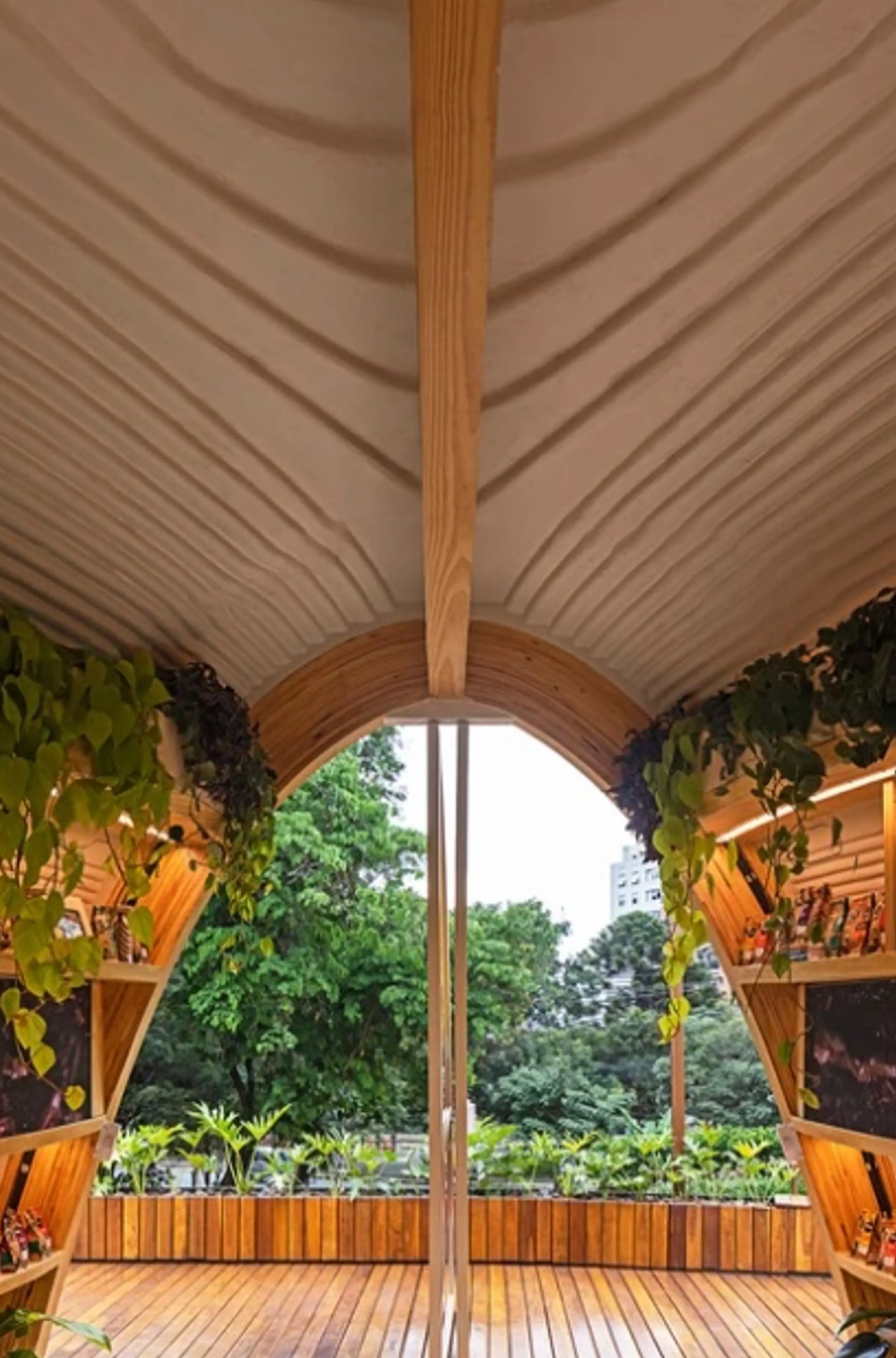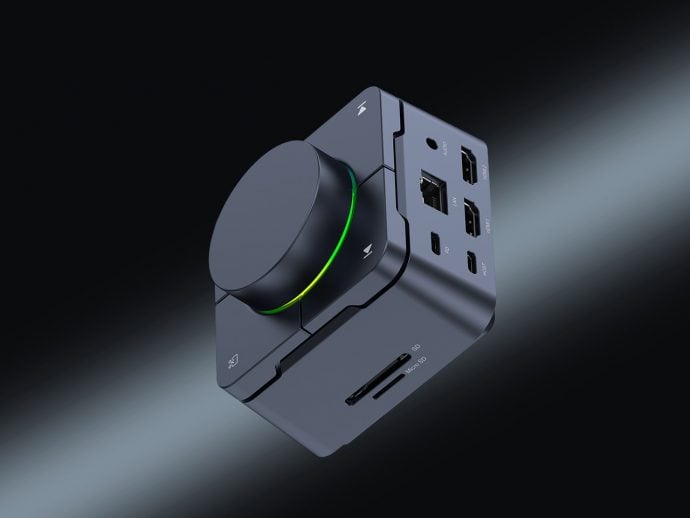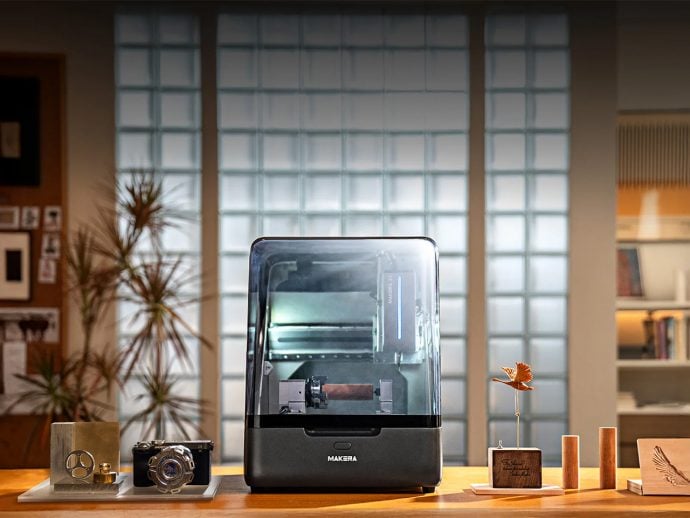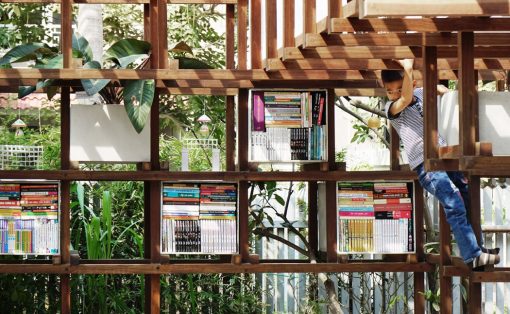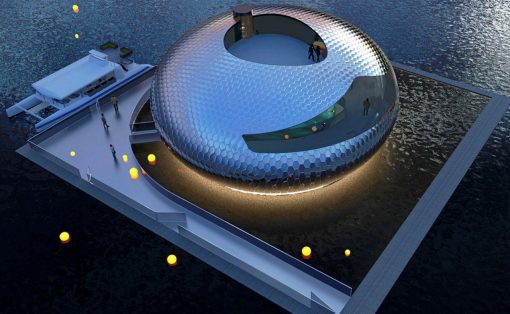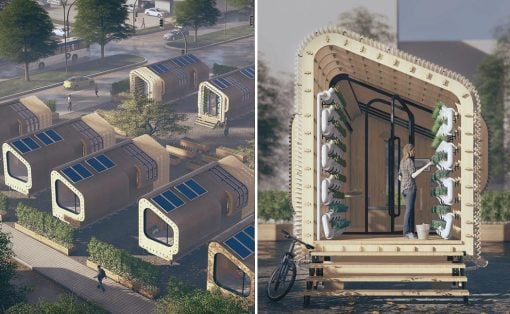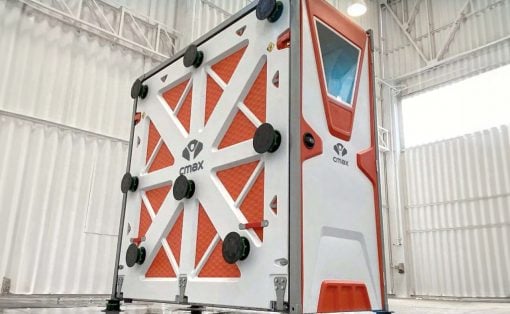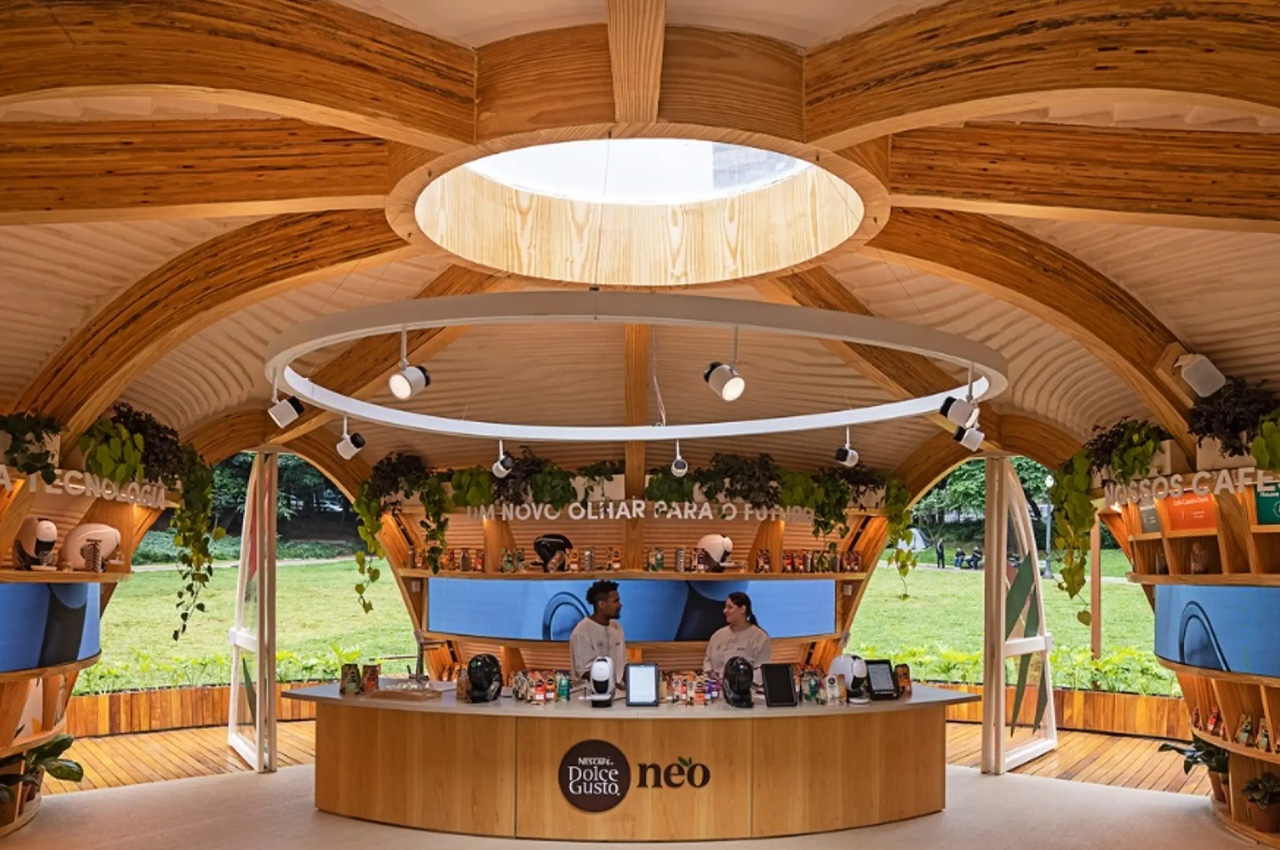
Nowadays almost everything is being 3D printed, so why should architecture be an exception? Many architectural firms have adopted 3D printing as their preferred technique for building structures. And 3D-printed architecture has truly gained a lot of popularity and momentum. It has paved a path for itself in modern architecture. And I mean, no wonder, it has a ton of benefits! It’s a simple, efficient, and innovative technique that lowers the risks of errors, and also manages to save time. 3D printing eradicates a lot of tedious steps during the construction process and simplifies it. And Nescafé has also jumped onto the 3D printing bandwagon with its first 3D-printed pop-up store!
Designer: Estudio Guto Requena
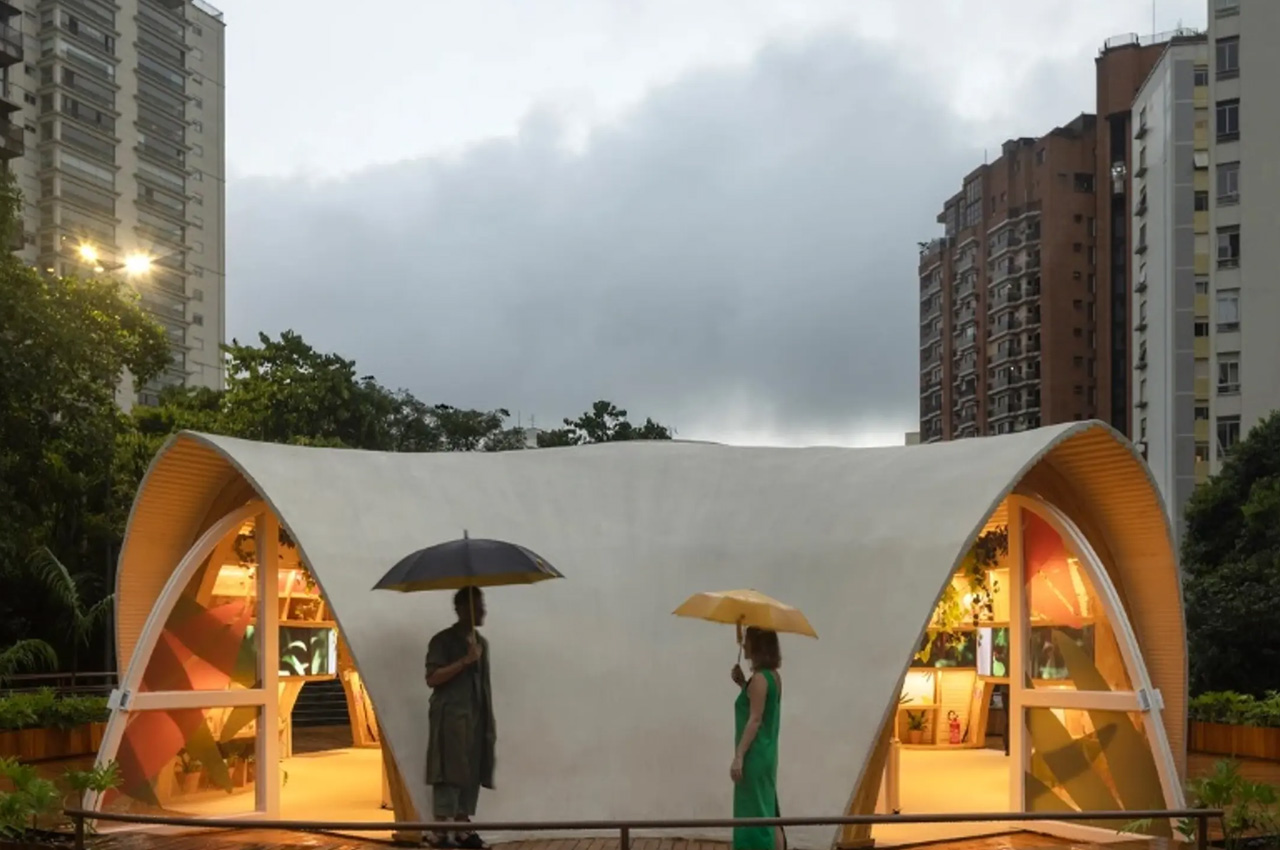
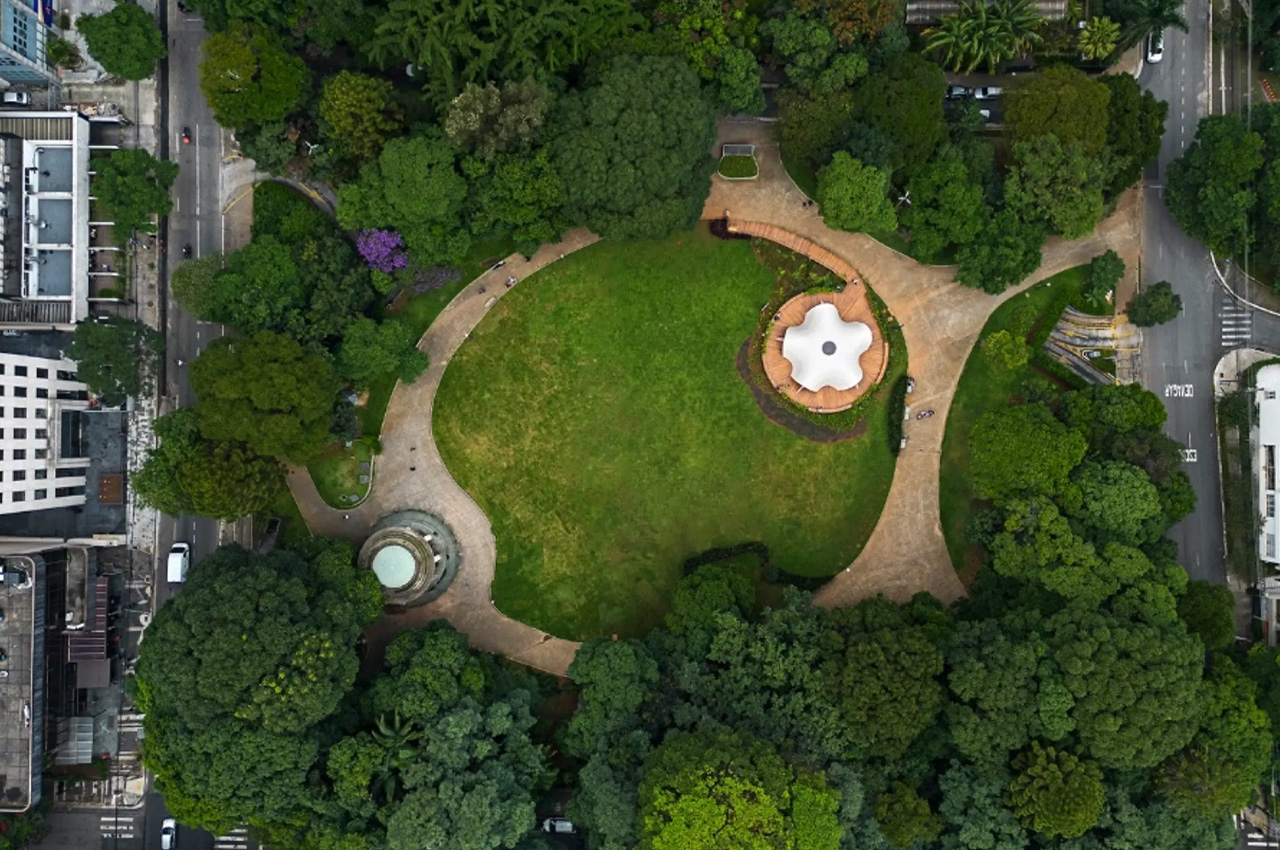
Brazilian architecture studio Estudio Guto Requena designed an innovative 3D-printed pop-up store for Nescafé. Called the Dolce Gusto Neo store, and located in São Paulo, the store was built using algorithmic 3D printing. The sustainable store was built using a combination of biodegradable materials and recycled plastic, which are an excellent alternative to traditional construction materials such as steel and concrete, both of which lead to carbon emissions and resource depletion. The concept and structure of the store were inspired by the five petals of the coffee flower. The store is groundbreaking, since it is a commendable effort towards regenerative architecture, and offers a conscious and innovative method to create prefabricated retail stores.
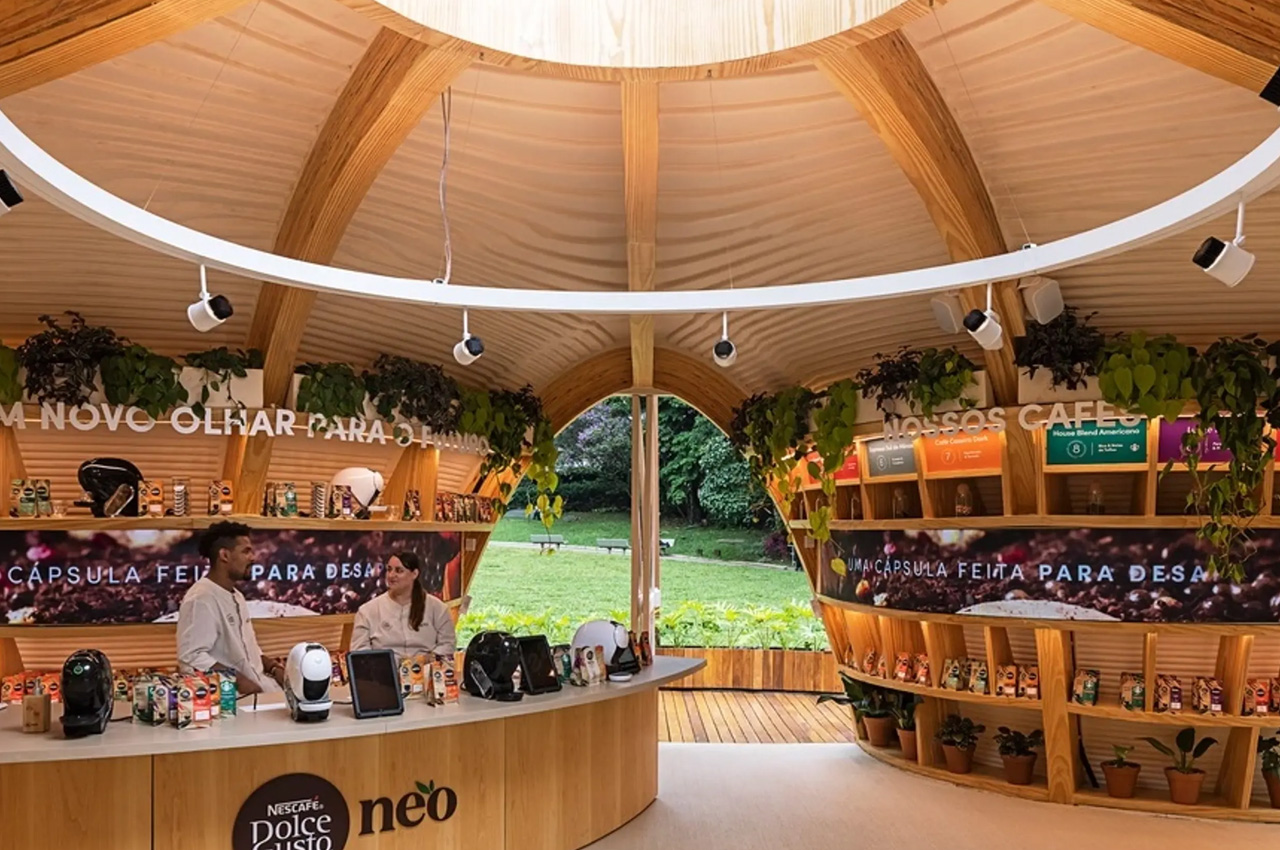
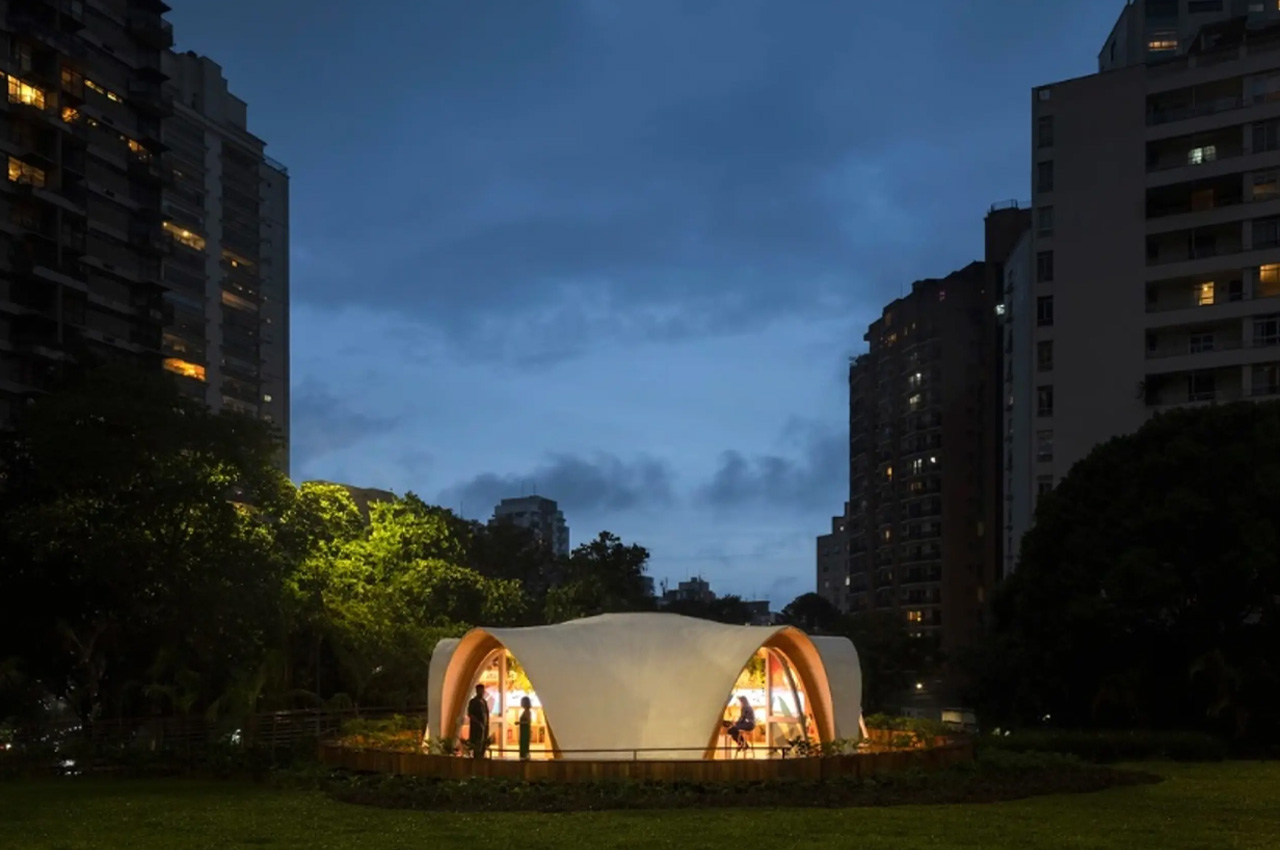
“The design for the Dolce Gusto Neo Flagship unites innovation, sustainability, and architecture,” said Estudio Guto Requena. “The building architecture invites us to reflect on potential futures that we could design, especially given the climate emergency we are facing.”
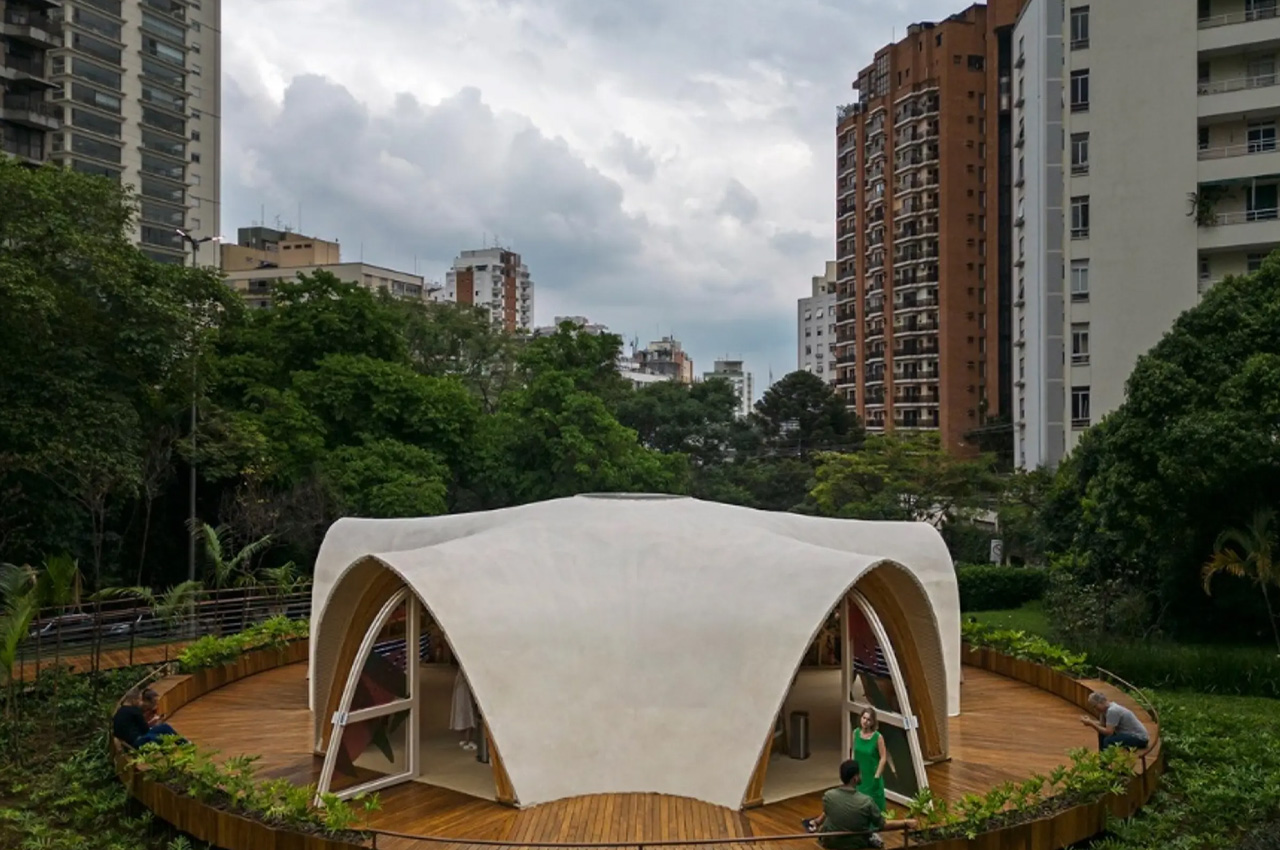
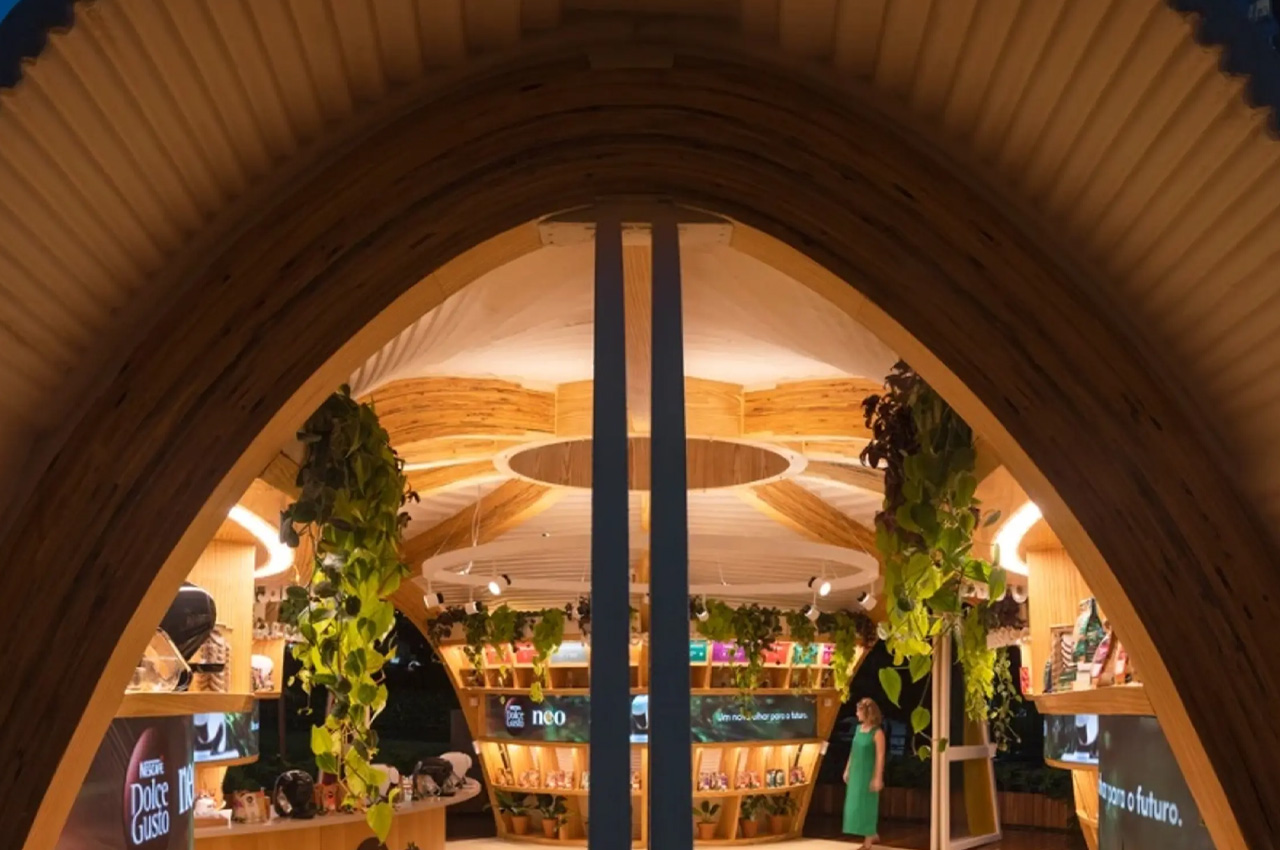
The Dolce Gusto Neo is built using a mix of glued laminated timber (GLT), from reforested pine trees, which serves as an eco-friendly source. It has a dome-shaped design supported by fixed axes, which accommodate five glassed archways that provide lovely views of the surrounding green space. A timber decking covers the store as well. The innovative and unique pop-up store is the first of its kind in Latin America and is truly paving the way for 3D-printed structures built using biodegradable materials.
